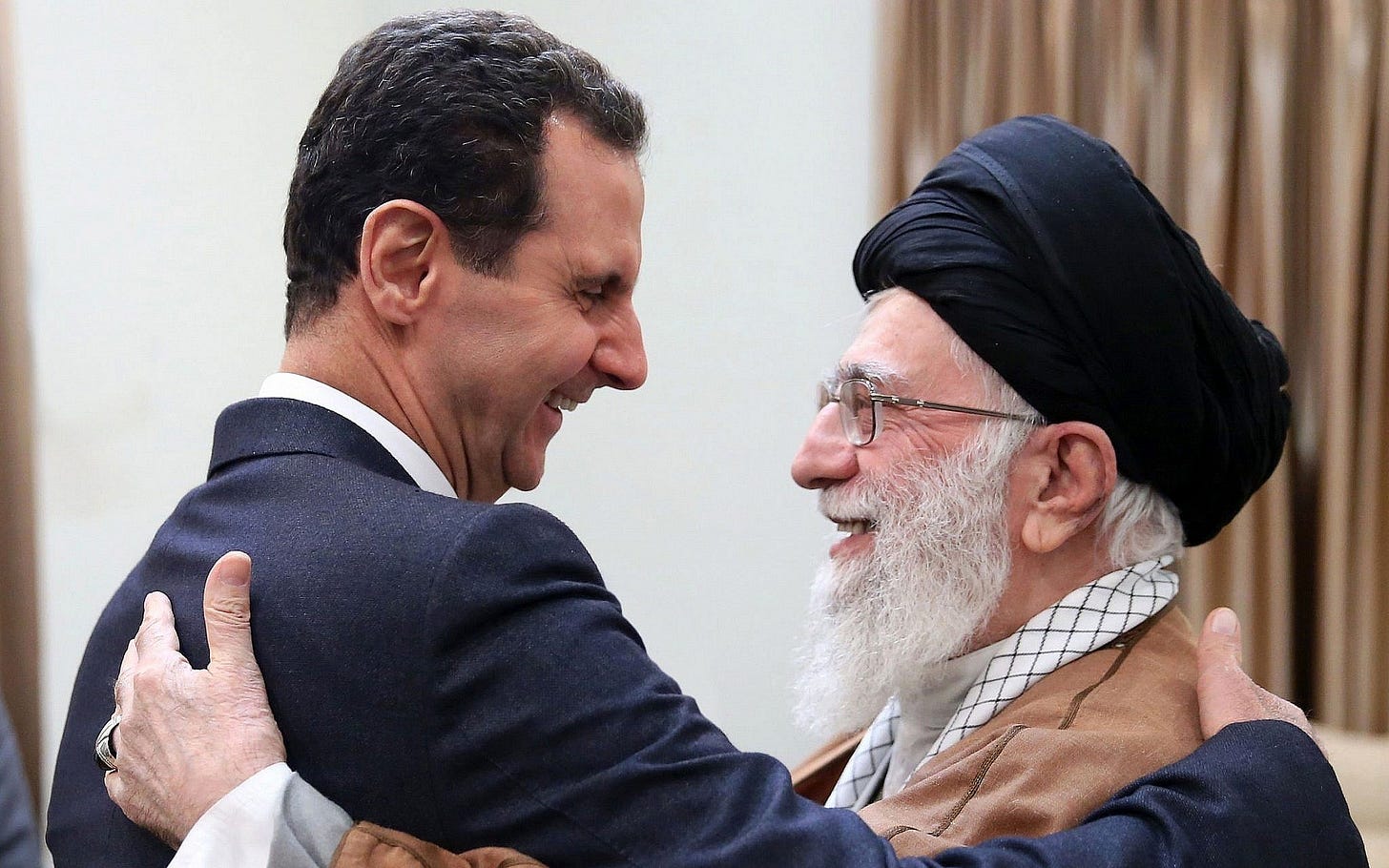Ghosted by Bashar al-Assad Assad: Tehran’s “Sugar Daddy Blues”
Tehran is still in shock after Assad’s betrayal, left to grapple with a $50 billion heartbreak.
Bashar al-Assad was believed to have two steadfast allies: the Shia Ayatollahs in Tehran, who paid a steep price to support him, and Russia’s Vladimir Putin. Yet Assad has chosen Moscow over Tehran—perhaps for life. Why? The reasons remain speculative. Some suggest he couldn’t trust Tehran, where, paradoxically, Israeli intelligence might have easier access to him, given its history of daring operations. Others believe he simply preferred Moscow for its vodka and freedom from the Ayatollahs’ restrictions. Whatever the reasons, Tehran is reeling.
Tehran in Shock
Tehran’s response to Assad’s flight was sluggish and disorganised. Iranian officials took over half a day to react, many learning the news via social media. The secrecy of Assad’s plan even blindsided Iran’s foreign minister, who had just met Assad in Damascus days earlier. To present an image of stability, the minister was even photographed eating shawarma in downtown Damascus—a surreal contrast to the reality unfolding behind the scenes.
The Supreme Leader’s office also appeared unaware. On the morning of Assad’s departure, *Kayhan*, a newspaper backed by Khamenei, published glowing reports of Assad’s military successes, hailing him as the "Lion of the Middle East." Hours later, Iranian state media struggled to announce the news, eventually adopting a new editorial line that awkwardly referred to Assad’s opposition as the "armed opposition group"—a significant shift from their previous branding of these forces as "terrorists backed by Zionists."
A Decade of Costly Support
For over a decade, Tehran justified its extensive support for Assad as a necessary investment in regional stability and defense against ISIS. Official estimates suggest Iran spent between $30 billion and $50 billion on Assad’s regime, though some believe the true figure is even higher. These expenses include cash salaries for fighters in Syria, with front-line combatants reportedly receiving $150 per month from Iran’s Islamic Revolutionary Guard Corps (IRGC).
Iran’s financial burden has been enormous, especially amid its own economic crises. Sanctions targeting its oil industry, rampant inflation, and widespread poverty have left Iranians increasingly critical of the regime's foreign ventures. Protests have frequently featured slogans condemning Iran’s support for Syria, highlighting public frustration over funds spent abroad while domestic hardships mount.
A History of Uneasy Alliances
The Iran-Syria alliance traces back to 1979, when Ayatollah Khomeini’s revolution replaced Iran's Shah. While the Shah had established ties with Israel, Hafiz al-Assad, Bashar’s father, supported Iran’s revolutionaries, providing them with resources during their struggle against Saddam Hussein’s Iraq. Despite ideological differences, the two nations’ Shia-led governments found common ground in opposition to Iraq’s Ba’athist regime.
Bashar al-Assad initially maintained good relations with the West, even meeting the late Queen Elizabeth II and Prime Minister Tony Blair. However, the 2011 Syrian uprising changed everything. As Western governments distanced themselves from Assad over his brutal crackdowns, Iran, which at the time was healing from massive anti-government protests, known as the Green Movement, stepped in to suppress opposition groups and ISIS, fearing a domino effect that could destabilise Tehran.
The Ayatollah’s Embarrassment
The suddenness of Assad’s departure has left Tehran’s leaders humiliated. Khamenei, who once praised Assad as a steadfast ally, now faces the reality of a regime they propped up for years abandoning them. Iranian state media struggles to reconcile years of propaganda with this new narrative, while the regime confronts the possibility that its multi-billion-dollar investment in Syria may never be recovered. Some of the usual contributors to state radio and TV, who consistently praised the Islamic Republic’s regional diplomacy, including its military presence in Syria, dared to criticise Assad live on air, calling out what they described as the Iranian government’s naivety in failing to foresee Assad’s plans.
Social media in Iran is abuzz with sarcastic commentary, likening Khamenei to a "sugar daddy" abandoned for a new lover. One user quipped, “It feels like buying Christmas gifts for someone who leaves you for another lover.”
The Sugar Daddy’s Dilemma
Khamenei’s office has promised a public address on Wednesday. He has been doing this often these days, after the killing of his favourite Hamas and Hezbollah leaders. Khamenei managed to control the narrative around these losses by calling them holy martyrs who sacrificed their lives fighting Zionists. But how can he explain Assad’s Russian adventure? How can he possibly address the humiliating reality that his strategy of “fighting Iran’s enemies in Syria so they cannot reach Iranian borders” has failed? Or how can he explained what his newspaper *Kayhan* headlined with disappointment one day after Assad’s departure: “Syria has now been handed to the Americans.”
For now, the Ayatollahs must contend with a hard truth: their [according to Iranian social media users] sugar daddy strategy has left them broke and broken-hearted.






